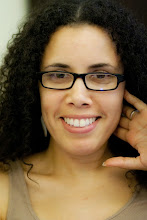4 Smart Money Moves for Singles
4 Smart Money Moves for Singles: By Sara Eckel
The vast majority of women will be single at some point in their lives. With good habits and planning, you can ensure a life of financial freedom, with or without a mate.
1. Buy a home. When Liz, now 38, bought her first apartment at age 35, she admits she did it with a feeling of defeat. "I had always thought I'd buy my first home with my husband, so I felt like I was stamping 'spinster' on my forehead." Three years later, New York City-based Liz still isn't married, but she's quite a bit wealthier. "The value of this place has almost doubled! Now I'm thinking about renting it out -- at a nice profit -- and doing some traveling," she says.
Bach says that buying a home is the single most important money move you can make. "You have to pay to live somewhere anyway. When you look at the difference between homeowners and renters, homeowners are rich and renters are poor," says Bach.
2. Invest one hour a day in yourself. You work hard all day -- don't you deserve to keep an hour's pay to yourself? Bach advises you to set up a retirement account that automatically withdraws the equivalent an hour-a-day's income straight from your paycheck or bank account. "If you start in your 20s and continue to do that for life you will be a millionaire," says Bach.
Indeed, starting young is the key to financial freedom, because successful investing has far more to do with how early you start than how much money you put in. Knuckey explains: "If you have someone who puts away $2,000 a year from age 25 to 35 and then never invests another dime, she will still have more money than the person who invests $2,000 a year from age 35 to 65," she says.
The choice is yours: Have that cute new pair of sandals now, or be a millionaire later?
3. Create a backup plan. Married people can lean on each other during economic trials, like layoffs or extended hospital stays. Single people have to create their own safety net. Knuckey advises building a cash reserve of two months' worth of living expenses. She also thinks that disability insurance is crucial for singles, and suggests that unmarrieds inquire with their HR department about disability coverage. "Often companies offer them at a good rate. If your employer doesn't offer them, then call an insurance agent, but don't let them talk you into life insurance -- you only need that if you have dependents. Just get enough disability insurance to cover your basic living expenses," says Knuckey.
4. Fight the "latte factor." Because singles go out more, they tend to spend more on "intangibles" like coffee and drinks. Those little expenses can really add up. Bach calls this "The Latte Factor."
Obviously, no one is suggesting you spend all of your evenings sitting in front of the television with a tuna sandwich, but pay attention to all the ways that your lifestyle can erode your cash reserves and look for ways to cut corners. Bach points out that if you can shave just $5 a day off your expenses -- coffee and a muffin, cigarettes, a glass of wine -- and invest it at a 10 percent annual return rate, that adds up to almost a million dollars ($988,611) over the course of 40 years.
Now that's what we call living happily ever after.


0 Comments:
Post a Comment
<< Home